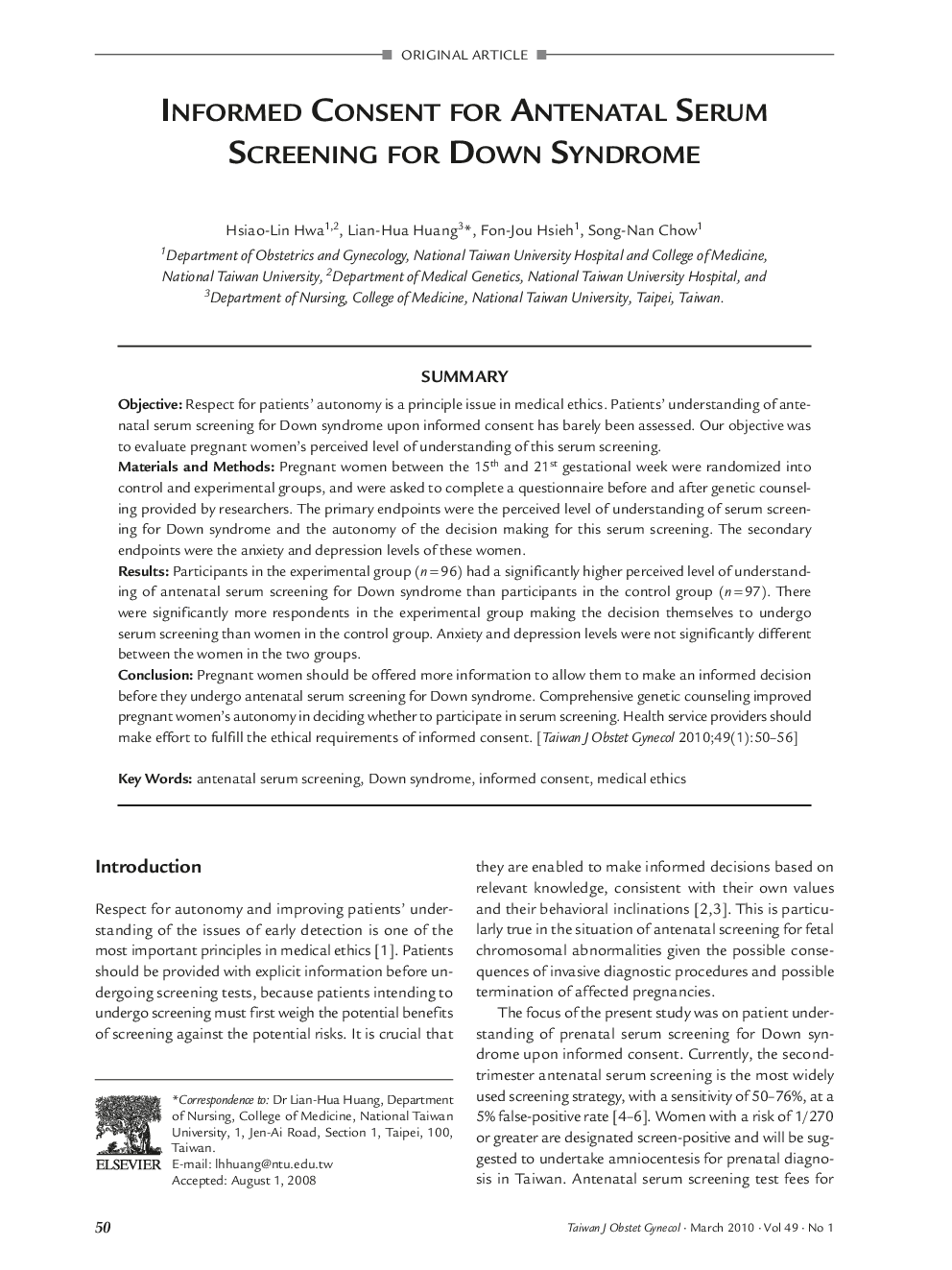| Article ID | Journal | Published Year | Pages | File Type |
|---|---|---|---|---|
| 3976036 | Taiwanese Journal of Obstetrics and Gynecology | 2010 | 7 Pages |
SummaryObjectiveRespect for patients' autonomy is a principle issue in medical ethics. Patients' understanding of antenatal serum screening for Down syndrome upon informed consent has barely been assessed. Our objective was to evaluate pregnant women's perceived level of understanding of this serum screening.Materials and MethodsPregnant women between the 15th and 21st gestational week were randomized into control and experimental groups, and were asked to complete a questionnaire before and after genetic counselling provided by researchers. The primary endpoints were the perceived level of understanding of serum screening for Down syndrome and the autonomy of the decision making for this serum screening. The secondary endpoints were the anxiety and depression levels of these women.ResultsParticipants in the experimental group (n = 96) had a significantly higher perceived level of understanding of antenatal serum screening for Down syndrome than participants in the control group (n = 97). There were significantly more respondents in the experimental group making the decision themselves to undergo serum screening than women in the control group. Anxiety and depression levels were not significantly different between the women in the two groups.ConclusionPregnant women should be offered more information to allow them to make an informed decision before they undergo antenatal serum screening for Down syndrome. Comprehensive genetic counseling improved pregnant women's autonomy in deciding whether to participate in serum screening. Health service providers should make effort to fulfill the ethical requirements of informed consent.
